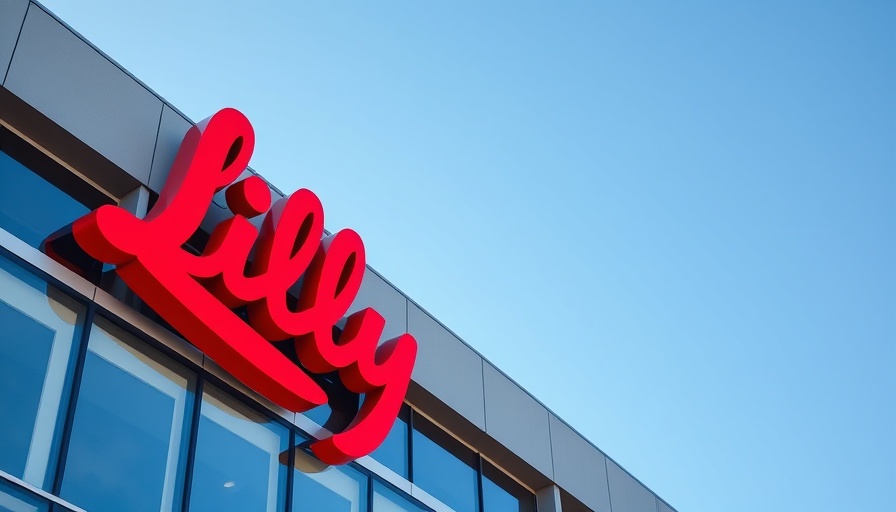
The Rise of Lilly: A Major Contender in Weight-Loss Medications
On April 17, 2025, Lilly experienced a significant surge in its stock price following positive results from their latest weight-loss pill, which competitors say rivals the well-regarded Ozempic. This development comes amid a rapidly evolving landscape in the pharmaceutical industry, where weight-loss medications are becoming increasingly sought after as obesity continues to pose significant health challenges across nations.
Understanding the Competitive Landscape of Weight-Loss Medications
The recent buzz surrounding Lilly's drug highlights an intense competition within the weight-loss medication market. Ozempic, known for its efficacy and popularity, set a high standard in the industry. Lilly's new offering appears to meet those expectations, potentially reshaping consumer choices and prescribing trends, leading to pivotal implications on the prescription drug market.
What This Means for Pharmaceutical Sales Reps
For pharmaceutical sales reps, the advancement of Lilly's drug results in both opportunities and challenges. The competition pushes sales teams to leverage robust marketing strategies and data analytics to articulate the unique benefits of their drug effectively. As Lilly's weight-loss pill enters the market, reps must familiarize themselves with its clinical data and positioning against market leaders like Ozempic.
The Role of Clinical Trials in Drug Commercialization
Clinical trials remain the backbone of drug approval and commercialization. Lilly's successful results signal the importance of investing in rigorous research and development. Data from these trials not only boosts credibility but influences formulary decisions by healthcare providers, ultimately shaping patient engagement initiatives. This shift underscores the need for pharmaceutical companies to prioritize innovative clinical trial approaches to validate their products
Patient Adherence Strategies: The Key to Market Success
The introduction of Lilly's new drug opens an avenue for exploring effective patient adherence strategies. As the competitive landscape heats up, maintaining patient loyalty becomes pivotal. Insights indicate that pharmaceutical companies focusing on targeted patient education and accessible medication delivery will likely see better outcomes in adherence rates. Investing in these strategies thus becomes invaluable, particularly for newer market entrants facing established competitors.
Future Predictions for the Pharmaceutical Industry
As the pharmaceutical industry continues to evolve, the rise of Lilly illustrates a broader trend in innovation and competition. Companies that adapt to changing consumer needs, invest in research, and prioritize market access will thrive. Forecasts suggest an increasing emphasis on personalized medicine, with weight-loss and chronic condition therapies leading the charge in the coming years. These adaptations may also signal a shift towards incorporating digital health tools and telemedicine into the treatment plans for patients.
Conclusion: Why Staying Informed is Vital for Pharma Professionals
Keeping abreast of advancements in pharmaceuticals, including Lilly's recent news, is crucial for all industry professionals, from sales reps to healthcare leaders. These developments not only affect market dynamics but also influence job roles and responsibilities. Understanding these shifts is essential for effectively navigating the competitive landscape, maximizing sales strategies, and addressing patient needs.
As we look ahead, professionals in the pharmaceutical industry must remain agile and informed about emerging trends, and consider enhancing their marketing strategies to cope with fast-paced changes in the drug commercialization space.
 Add Row
Add Row  Add
Add 




 Add Row
Add Row  Add
Add 

Write A Comment